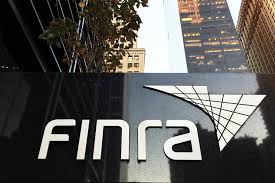By George H. Friedman*
[The author thanks the Securities Arbitration Commentator for letting him borrow liberally from its coverage of the cases below in its weekly Securities Arbitration Alert]
Mediation in my eyes has sometimes been treated like the Rodney Dangerfield of the alternative dispute resolution (“ADR”) field, not getting the full measure of respect from the legal system enjoyed by its fellow ADR traveler, arbitration. Perhaps this is rooted in the fact that there’s no mediation analogue to the Federal Arbitration Act.[1] Or perhaps it’s because, unlike an Arbitrator, the Mediator cannot impose a settlement on the parties. Stated differently, the Arbitrator’s chief power is the ability to make a decision, while the Mediator’s is the power of persuasion. Big difference.
Some say mediation is not binding. While it’s true that the Mediator can’t dictate settlement terms, as discussed below, recent state and federal court decisions demonstrate that agreements to mediate and settlements reached via mediation are very binding.
Nevada Supreme Court to Litigant: “Not so Fast”
A clause calling for mediation in advance of litigation was an enforceable condition precedent to filing a lawsuit, a unanimous Nevada Supreme Court held in MB America, Inc., v. Alaska Pacific Leasing Company, 132 Nev. Adv. Op. 8 (February 4, 2016), a case of first impression. The parties’ contract stated that any disputes “shall” be submitted to mediation at the AAA, and that if mediation was not successful, “each party will have the right to enforce the obligations of this Agreement in the court of law of Reno, Nevada…” After a dispute arose, MB America resorted to litigation without first filing a mediation, and Alaska Pacific moved successfully for a summary judgment.
Adopting holdings from other jurisdictions, the Nevada Supreme Court states: “This opinion addresses the issue of whether a prelitigation mediation provision in the parties’ contract constitutes an enforceable condition precedent to litigation. We hold that it does and that, because MB America, Inc. (MBA) did not initiate mediation as required under its agreement with Alaska Pacific Leasing Company, the district court correctly granted Alaska Pacific’s motion for summary judgment.” Note, too, that the trial court dismissed the underlying litigation, rather than staying it pending mediation. The Supreme Court was OK with this; “[b]ecause the authorities cited by MBA address arbitration, as opposed to mediation, they are inapposite here.”
District Court: A “Handshake” Settlement is a Settlement
When a case settles, experienced Mediators will go over the terms of settlement and have the participants sign off on them before the parties and their counsel scatter. What happens if time doesn’t permit this crucial step? Is the resulting “handshake” settlement enforceable? “Yes,” says the federal District Court for the Western District of Pennsylvania in ThermoLife International, LLC v. D.P.S. Nutrition Inc., et al, d/b/a iForce Nutrition No. 15-273 (W.D. Pa. Dec. 15, 2015).
The parties’ patent infringement litigation was ordered to mediation. The parties reached a settlement – literally at the eleventh hour – just before counsel for Defendant iForce had to leave for the airport. Before everyone left, the Mediator orally confirmed each of the terms of settlement, promised to confirm them in detail by email, and assigned responsibility for drafting a formal settlement agreement. The participants shook hands and went on their way.
Within an hour the Mediator sent the promised email detailing the settlement terms. Counsel for plaintiff ThermoLife immediately confirmed the settlement terms, but no objections – or any communications – were received from iForce for a five-day period. On the fifth day, counsel for iForce ultimately advised that there was no settlement. ThermoLife then returned to the court seeking to enforce the settlement, and obtain sanctions.
In rejecting iForce’s contention that the handshake agreement was unenforceable, the Court noted that the Third Circuit has held consistently that oral settlement agreements are enforceable and “settlement agreements reached through mediation are just as binding as those reached during litigation.” The Court gave significant weight to the Mediator’s post-mediation email, which clearly indicated details of a settlement, as well as his notification to the Court that the case had been settled. “The Court finds the statements of Mediator Oberdick deserving of significant weight. Mediator Oberdick is a respected member of the Bar and an experienced neutral… Clearly, Mediator Oberdick understood that a settlement had been reached and any attempt by iForce to deny that settlement was reached is unavailing.” As for sanctions, the Court found “iForce’s belated denial that a settlement had been reached is not only vexing at best but appears to be disingenuous,” and directed that ThermoLife be reimbursed for attorneys’ fees incurred enforcing the settlement.
Seventh Circuit: Informal Handwritten Mediation Settlement Agreement is Also Enforceable
At the conclusion of the mediation session in Beverly v. Abbott Labs, Inc., No. 15-1098 (7th Cir. March 16, 2016), the parties and their attorneys signed a handwritten settlement agreement containing the key terms. The next day, Abbott’s counsel sent an email to Beverly’s attorney accepting the terms of settlement and sending a typed draft formal settlement agreement. About five minutes later, Beverly’s counsel responded by email stating: “Oh happy days! Best $10,000 Abbott has ever spent. You are a gem.” Client Beverly, however, declined to sign the formal settlement agreement, resulting in litigation to enforce the handwritten settlement agreement.
In affirming the District Court’s ruling enforcing the agreement, the Seventh Circuit finds unanimously that it was enforceable because “the agreement sufficiently defines the parties’ intentions and obligations. The material terms in the agreement clearly provide that Beverly offered to ‘resolve this matter’ – i.e., voluntarily dismiss her alienage and disability claims – if Abbott paid $210,000 and mediation costs… It also states that Abbott had five days within which to accept Beverly’s offer, which it did the following day. Both parties and their respective attorneys signed the agreement, further demonstrating their intent to be bound by the terms of the document. And the elated response of Beverly’s counsel to Abbott’s acceptance further underscores the parties’ understanding that the handwritten agreement would settle Beverly’s claims” (citation omitted).
Toward the end of the Opinion the Court adds an interesting practice pointer for parties, mediators, and dispute resolution providers: that mediation sessions be recorded or transcribed, at least when it comes to memorializing settlements. Says the Seventh Circuit: “It bears mentioning that a transcript (or some other recording) of the private mediation session here may have provided important clarity regarding the parties’ beliefs and intentions relating to the handwritten agreement and the draft proposal. We encourage future litigants to record any communications that directly relate to final settlement agreements.”[2]
FINRA Mediation
FINRA’s mediation program – the first in the securities field – was founded in 1995. It was the brainchild of my former FINRA colleague Ken Andrichik, who for the past two decades has nurtured, grown, and improved the program. Over the past two decades, over 17,000 disputes have been referred to FINRA mediation. The program boasts an 80% settlement rate, has a distinct set of FINRA Mediation Rules, and conducts mediations throughout the United States.
 One wonders what would happen in ThermoLife and Beverly had these been mediations conducted by FINRA. Rule IM-12000(e) allows the Authority to discipline industry parties who don’t honor “a written and executed settlement agreement” resulting from a FINRA mediation. My guess is FINRA would view the handwritten, signed document as a “written and executed settlement agreement.” I’m not so sure about the “handshake” agreement.
One wonders what would happen in ThermoLife and Beverly had these been mediations conducted by FINRA. Rule IM-12000(e) allows the Authority to discipline industry parties who don’t honor “a written and executed settlement agreement” resulting from a FINRA mediation. My guess is FINRA would view the handwritten, signed document as a “written and executed settlement agreement.” I’m not so sure about the “handshake” agreement.
Conclusion
Of course, while three cases do not constitute an undeniable trend, one gets the impression mediation is coming of age.
_____
*George H. Friedman, an ADR consultant and Chairman of the Board of Directors of Arbitration Resolution Services, Inc., retired in 2013 as FINRA’s Executive Vice President and Director of Arbitration, a position he held from 1998. In his extensive career, he previously held a variety of positions of responsibility at the American Arbitration Association, most recently as Senior Vice President from 1994 to 1998. He is an Adjunct Professor of Law at Fordham Law School. Mr. Friedman serves on the Board of Editors of the Securities Arbitration Commentator. He is also a member of the AAA’s national roster of arbitrators. He holds a B.A. from Queens College, a J.D. from Rutgers Law School, and is a Certified Regulatory and Compliance Professional.
[1] Yes, there’s a Uniform Mediation Act, but few states have enacted it.
[2] I have the same views on this point as expressed by SAC in its coverage of this case. While recording or having a court reporter at mediations in general would have a chilling effect on the process, the idea of somehow capturing verbatim the terms of settlement reached in a mediation session is thought-provoking. FINRA has recording equipment at its hearing rooms and provides portable recording devices to Arbitrators when hearings are held outside FINRA’s offices, so recording mediation settlement terms would not be logistically difficult, and would avoid any confusion over terms of settlement or whether a settlement had been reached.





